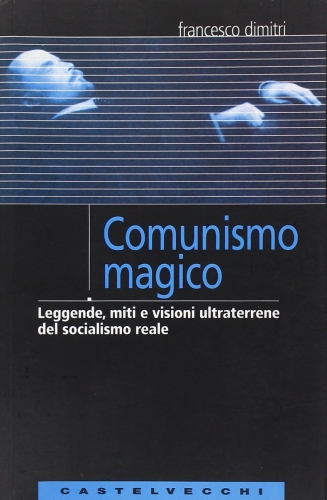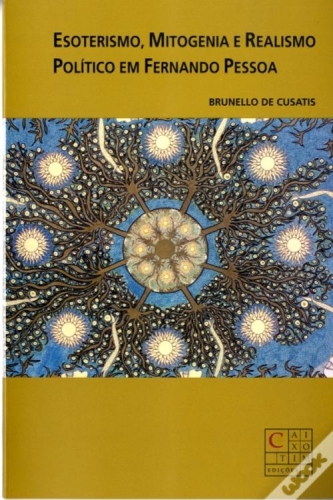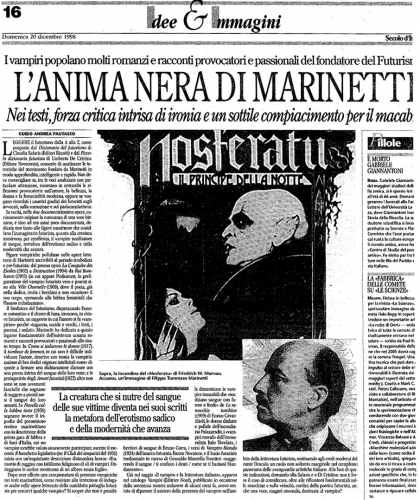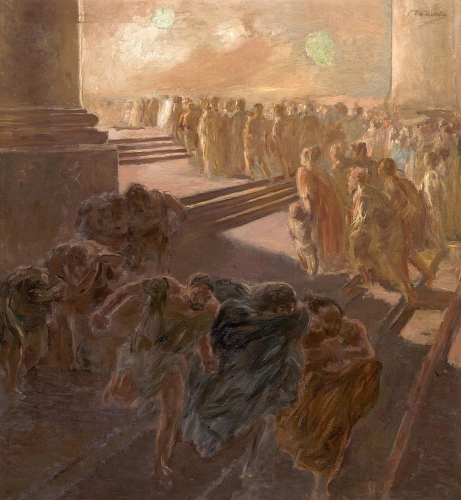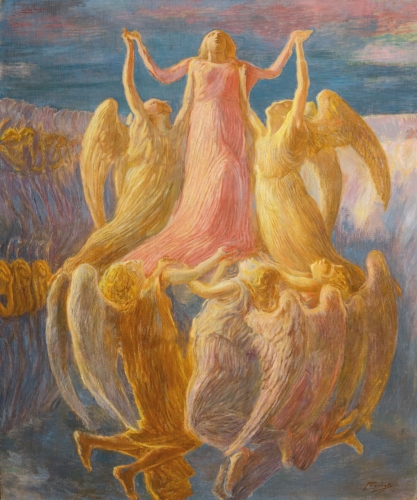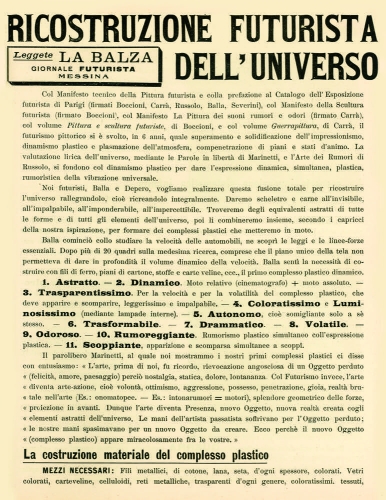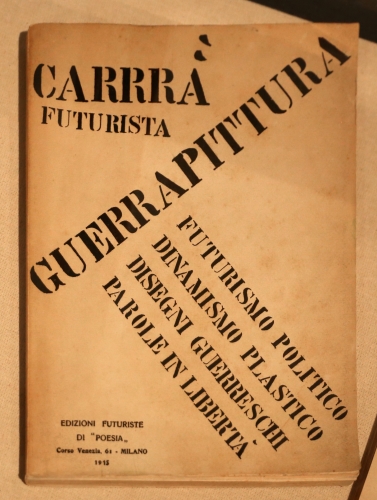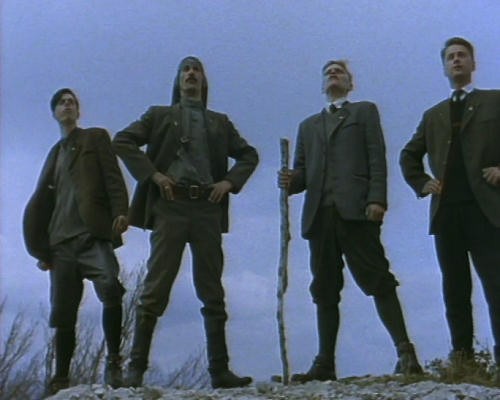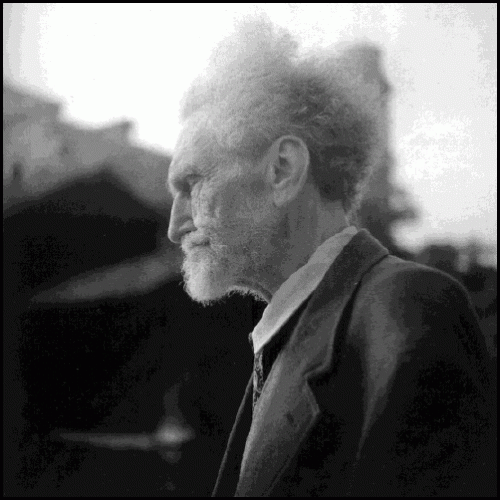Editor’s Note:
The following text is the transcript by V. S. of Jonathan Bowden’s London Forum lecture in London on December 3, 2011. I want to thank Michèle Renouf and Jez Turner for making the recording available.
This is a very difficult topic to speak about because it appears to be a depressing and pessimistic era where most of the storm and stress and most of the Zeitgeist, or spirit of the age, seems to be against us. There’s also a preponderance for people on the Right politically to have metaphysically conservative views, which means they’re often pessimistic; they’re often loyal to Spengler’s idea in the 1920s and 1930s that “optimism is a form of cowardice” and in relation to that sort of idea the notion that one should be optimistic about the future is difficult to sustain. But given that the past speech was rather sort of statistical and slightly morbid in tone, my job is not to put a reverse spin on it, but at least to attempt to generate some optimistic energy.
There are more of us than ever before, but it’s always a question of quality as against quantity in this life, because what I am going to propose is that instead of looking at demographic and quantity-based analyses, quantitative ways of looking at things, let’s look at qualitative ways of looking at things. Let’s look at quality. Let’s look at elitism. Let’s look at the fact that all groups need a vanguard.
I remember once a Times journalist asked me a very long time ago in relation to an event called the Le Pen Dinner, which is now 20 years old and more, he said, “What’s your view of all this stuff about revisionism?” This was in the hotel in Knightsbridge/Kensington where Le Pen and his guests were situated. He said, “What’s your view of all that?” He said, “Is it all true or, contrariwise, is it all false?” And I said, thinking of some famous murder trial of the time, I used the example of the Wests, Frederick and Rosemary now, but of course this particular discussion predated that. I said, “Well, that trial . . . Is everything that occurred in that court case all true or all false?” He said, “Well, hold on a minute! Some of it is bound to be true and some of it is bound to be false.” And I said, “Well, absolutely. That will go for revisionism as much as anything else.”
All that revisionism is, is the ultimate defense of a particular vanguard at a particular time who believe that they are fighting for Western civilization. All elites and vanguard minorities are is the radical consciousness of their own group. Just as people like Louis Farrakhan were mentioned earlier on, who is the leader of a sect called the Black Muslims, and just as they are in some respects totally unrepresentative of a lot of African-American opinion, they nevertheless represent an ultimate redoubt, an ultimate salient, or a bridgehead from which their population can go forth and from which it can gain energy and succor and that’s the way you have to look at these things.
People need ultimate resources. They need absolutists, and they need semi-fundamentalists who will stand up for them at least in a conceptual way. Even if they can’t stand up for themselves, don’t want to, or wouldn’t even know how to. The point of radicals, particularly radicals who deal with the politics of identity in any shape or form, is to provide that elite, is to provide that vanguard.
You all know the technology of a bullet. A bullet is very significant in the impact it can have on a wall or a piece of wood or per force the human body, but if a bullet is perforated in the top or has mercury injected into the top and is sealed in again it becomes a far more devastating weapon. It becomes what is known as a dum-dum bullet.
Now, if a vanguard is to have the effect of such retreated bullets so that conceptually and actually the energy and vigor of debate is transformed by the use of such a vanguard and its terminology, it has to be aware of where it’s coming from, what its tradition is, where it’s going to, and what it represents at a particular time. Just because most of the politics of this era seems to running well and truly against us does not mean that the situation is hopeless, because situations are never hopeless. Groups that have been done down or perceive that they’ve been done down by history have undergone worse traumas than we are undergoing at the present time.
The danger of the ideology of the victim, which I don’t really subscribe to except as a tactic on occasion, is that you begin to think like a victim, and you begin to act like a victim. Many of our people now are almost asking for a whipping, asking for a collective beating, asking to be forgiven for the past, asking to be forgiven for sins and crimes of the past which they never committed, which they’re hardly aware of, which can be reconstrued as episodes of heroic cruelty or glorious vanguardism that don’t even need to be apologized for in the past or in the present.

There’s a degree to which I personally think that the doctrine of vanguardism is the way out of the dilemma that we face. All Communist movements believe that the proletariat needed to be saved from itself. They believe that the masses were degraded by feudalism and by capitalism. They believe that only an elite or a vanguard party could raise the masses up to socialism as the inverse of the capitalism they wish to replace. All Communist movements that flourished in Western and other societies throughout most of the late 19th and 20th centuries based themselves upon the vanguard principle. These movements were tiny. Smaller than the number of people gathered in this room in central West London tonight by a long way.
I’ve got a book about literature on my desk at the moment. In order to tabulate historical reliefs for literary points, they give the listing of events for particular years and in one particular year – I’m not sure, it might be 1912 – it talks about the Bolshevik and Menshevik split. It might have been in that year; it might have been in another year. That split happened in London. It happened in a pub in London, and all Bolsheviki and Mensheviki means is “majority” and “minority.” There was a split between the two of them, and you can imagine them all with their beards and so on haranguing each other and debating about whether there should be an instantaneous rising in Russia or whether they should wait for the historical process to take its course, because Russia was not yet a capitalist society with a bourgeois class that could be overthrown and so on. The majority of Londoners even from the ethnic groups that a significant proportion of those Communists were drawn from would regard all that as idiocy and lunacy just as the bulk of White people today regard a significant amount of what we say as lunacy.
All people who have a vanguard, an elitist mentality, are regarded as partly mad by their own groups, because the majority of people do not want to know. The majority of people wish to live their own life in their own way, and they only look at these broader questions when life impinges upon them and comes upon them, and the hand of life grasps them by the collar and they really cannot do any other thing but notice what is in front of them.
Many of the reasons our people do not seem to have a sense of solidarity amongst themselves in relation to the degree that some other groups could be said to have is because a significant number of them have never been kicked, have never felt what it is as a group to be disprivileged in a society. Unfortunately, in certain areas of British and continental life now and North American life that process for some, and certainly not at the top or middle of the society, is beginning. They’re beginning to realize what it is like to be a minority or what it is like to be culturally disprivileged or what it is like to be dispossessed in a way.
That spirit will grow, but it will only feed into consciousness in a number of select minds, because the bulk of people are not drawn to be in a vanguard formulation. People will only listen to a vanguard when they are desperate. They will only listen to a vanguard when they think there is no other hope. They would love for many of the problems of contemporary Britain, many of which revolve around the processes of immigration, to be solved, but they would love to have nothing to do with it themselves and they would love if somebody came forward magically without trouble and without fuss to deal with it on their behalf. They want no unpleasantness and they want no nastiness, particularly in their own name. But at the same time if anybody does things of any sort that could be ascribed to that they would run away and hide initially, be privately pleased, condemn the people who did it, support the people who are against them, and yet at the same time have a secret smirk and smile on their face about the whole thing. And they would do all of that simultaneously and that’s what people are like and that’s what our own people are like up to a point and that’s the funk and the state of internal confusion and bemusement that our people are in because every time they turn on the box in the corner it says that everything is marvelous and it’s all for the best and that there’s no need to worry and that we’re all sleep-walking towards victory.
I read Nineteen Eighty-Four again recently. It’s been a good quarter of a century since I read that book, and it’s a remarkably prescient work in every sense. Of course, it’s a social democratic criticism of Stalinist authoritarianism, but in actual fact Orwell’s idea that everyone polices their thoughts before they speak, they even police the idea of their thoughts before they speak, is very germane to the present hour.
I was with a relative of mine many years ago and we were in a wood near Liverpool on our own and he looked behind him before he made a politically incorrect remark. Because he was worried! He was worried to be alone in a wood with someone else.
And if you remember, in the second section of Nineteen Eighty-Four, Julia and Winston have their rather tawdry affair, it has to be said in a way, against the party. Sex is rebellion against the puritanism of newspeak and all that. They go into the middle of a wood and they go into a middle of a clearing of saplings in order to get down to it and the reason that they do that is firstly, of course, it’s not in an urban area and therefore there are no telescreens. These televisions that can look both ways with the secret police and thought police behind them. And on the other hand, there are no microphones, because wherever there isn’t a telescreen you can never vouchsafe that there isn’t a microphone in that particular novel listening to you.
People are policed now by political correctness, which they adhere to and which they go along with and which they profess to love whilst at the same time hating and despising looking over their shoulder as they refute it and rebut it in the context of their own life. Because that is what the majority is always like. The majority is confused and inane and believes in the last thing that’s ever said to them. Of course, in all societies you have a hierarchy of knowledge and understanding. Probably about 40% of people are quite politically proficient, know what’s what, know to a certain degree, have a cynical regard for the system as it is, at least a compos mentis about the sort of culture and society we are living in. But a good 60% are not.
There’s a famous story about a Labour member of Parliament who went to a constituent’s door. He was Dennis Potter, the playwright that later emerged on the BBC, and he was a Labour candidate in his earlier vintage. He knocked on the door, and the woman and husband would come to the door, and the woman would say, “What are you going to do about immigration? As a Labour candidate, as our candidate, as the candidate who will speak the truth to us unlike the Tories . . .” Not understanding, of course, that Labour is a center Left party that believes in mass migration as a doctrine of law and morality and whose Nationality Act of 1948 began the modern day process of complete societal transformation because, as Attlee said at the time, “If the races of this world were mixed together there will be no more war,” and that is an ideology which many of the old Labourites believed in body and soul from the anti-colonial movement from which they came. But the bulk of Labour voters thought Labour stood for something very different from that. They thought Labour stood for them and for their family and for their extended family, and people who were like the people who lived on the posher estate down the way voted for another party. That’s what they thought.
But Potter had to answer this woman and her husband because they stood before him. He said, “Well, what do you mean? Labour is in favor of fairness for all.” A politician’s answer, of course, even on the doorstep. She said, “Oh, there’s too many, and they’re taking over the center of town, and I don’t feel safe anymore, and things have changed out of all recognition, and some of what that chap Enoch Powell says – I don’t like him, because he’s a Tory – but at the same time it’s got some truth to it.” All the time Potter was wanting to reply . . . He was wanting to reply that “you’re a bigot,” “I don’t want your vote,” “Even if you are prepared to give it to me under other circumstances where you said you repudiated what you’ve just said.” And all the time his agent was kicking him, was kicking the back of his heels saying, “Come on. There’s plenty of other doors. There’s plenty more to do, Dennis. There’s plenty to get the sort of red ribbon vote out. Let’s leave them to themselves. They’ll probably vote Labour anyway.” As indeed they will.
He kept kicking him and so on, and in the end Potter said, “Labour is for fairness for all, but of course we will listen to your concerns, Madame.” As he was turning away, the agent said, “And what will it be then?” to the husband, who had obviously not really gotten a word in beforehand. And the husband said, “Oh yeah, we’ll vote Labour as normal, because you listen to what we say.” And they’re not alone, because there are millions like that. Millions and millions like that. “Politicians will sort it out.” “Politicians left to themselves will do something to make sure that things won’t get as bad as they could be.”
The other thing you often hear about is death. People say, “It’s not going to happen while I’m around therefore I don’t need to bother about it.” I’ve had lots of people say to me, “Oh, it’s 40 to 50 years off. Who knows what will happen? I can’t do anything. You can’t do anything. So, what’s the point? In any case, I’ll be dead by then anyway or gaga or very elderly.” And so on. You hear that again and again, because of course what you have in modern Western societies is the extreme powerlessness of the individual. Apart from maybe in consumption and expenditure of cash, the average individual feels totally cut off from the external society. It’s what I call deep privatization.
Privatization in the 1980s and the 1990s meant the dispersal of public utilities and was a sort of Thatcherite and neo-liberal ideology, but privatization has actually gone much deeper than that. It’s the view that each is out for himself and society hardly exists beyond the confines of one’s own family, one’s own extended family, and people one happens to know. People feel not just sort of deracinated, but de-popularized and de-democratized, if there are such terms. People are, in an extraordinary sense, alone. Alone with the television, alone with the telescreen, which when they flip from channel to channel tells them all the time that everything is perfect and there are only nasty-minded people who will stir things up as vanguards and various forms of extremism.
Extremism, of course, is something always to be rejected, but I think extremism is necessary. I think it’s socially and mathematically necessary, because there has to be a logic to the logic of logic. There has to be something which takes the argument out to the furthest point on the circle. In maths, if you have a curve, you have a line that penetrates it at the furthest extent, and I believe that there has to be a logic that in the realms of sanity and in the realms of what’s possible bisects the line at the most radical point, and that’s what the people in this room are. That’s what vanguard forms of identity amount to. They are the most radical manifestation of the implicit sense of becoming and belonging and identitarian man and womanhood of the ordinary people in one’s own group, and you have to manifest that, and you have to represent it, and only by doing so can you have a certain effect, because you do have an effect by virtue of existing.
There are many other groups on this planet who always ask the question when anything happens, “Is it good for us?” “Is it good for us, or is it bad for the others?” But most people think actually, “Is it good for us?” Far more people, even of a vanguard or elitist temperament, are prone to say, “Is it good for us?” rather than “Is it bad for the others?” because, contrary to liberals who always think that positions of identity are based on the idea of doing others down, principles of identity are usually based on boosting or, to use an ugly contemporary phrase, bigging up one’s own group. People actually think more positively about themselves before they get into negativity about others, contrary to the view that politics of identity is all about negativity towards others and as long as you can suppress that through political correctness everyone can live happily in a multi-cult, multi-identity firmament or melting pot.
I think the point to make about vanguardism is whenever anything happens, people in other groups and people in other vanguards and liberal humanists in our own group, because as the previous speaker said quite truthfully, it is indigenous liberals who are our real enemy . . . Indigenous liberals are always the enemy. Liberalism within ourselves is always the enemy. It exists even in people who regard themselves as radical, to a certain extent.
We’ve had liberalism in an uninterrupted way for centuries. Russia has never known a liberal regime, and whether one likes it or not the politics of contemporary Russia have a lot to do with the fact that they’ve never known a period of liberalism. You could argue that since the restoration of the monarchy in the 1600s, we’ve known nothing but various forms of liberalism, most of which linked to various elements of the Protestant religion during that time. But until about the 1950s or 1960s most forms of Protestantism retained residual illiberal and patriotic ideas, as for a period they did in a very sectarian way in Northern Ireland.
So, all views have their liberal side. Even hardliners have their liberal side which they have to guard against by chipping away at them. Liberalism also feeds on indifference. Indifference to the future and indifference to the generations that are coming in the future.

But vanguardism is something different, because it lives for the virility of what might be in the future. Make no bones about it, what vanguard Caucasians think about their future is watched and is listened to by liberals and by all the other groups. So, the idea that what we do and what we say and what we think has no relevance or no purport is not true. What is true is the competition between groups is part of the stuff of life. Contemporary society is based upon the formulation that that is not the case, and because it is the case, nature will trump all of the liberal arguments. The problem is that if it doesn’t take a political form nature’s trumping of liberalism will be a very painful process to live through, a very painful process for ourselves, for everybody, and for all other persons in other groups. That is why we have to continue with putting forward percussively the politics of identity from our own standpoint.
Let’s take something in the news at the moment. There’s a large cranking up and there’s a building up of energy for an attack on Iran. At the moment, it appears to be small. It appears to be a cloud smaller than a man’s hand. The United Nations has reported that Iran is building a nuclear weapon. The United Nations has reported that their nuclear technology is of dual use, but all nuclear technology is of dual use. When we developed a nuclear weapon the Americans were staunchly opposed to us possessing it, because they wished to live in a unipolar world where only one power had that particular device. Of course, all other major nations were working on these devices. I believe 34 other countries are developing some sort of nuclear program at the present time, including Saudi Arabia, because they fear that Iran is doing so because they’re nearby.
But let’s look at it in another way. Is it in our interest that Iran is attacked? Is it in our interest that Iran is attacked? And the answer has to be that it is not in our interest, and it is not in our interest because they are not natural friends of ours, not natural enemies of ours. They exist in a different part of the world, though we exist in a post-imperial situation now. We do not wish to be dragged willy-nilly into yet further wars after Iraq and Afghanistan at America and Israel’s behest. As soon as one factors into the question vanguardism and group identity it becomes quite clear that The Times and The Economist and all of these neo-liberal and neo-conservative journals pushing for an attack upon Iran that is not in our interest, and other groups can figure what goes on in the world directly as whether it’s in their interests or not. In a confused way, our people aren’t bothered whether Iran’s attacked or not. Our people sit there watching the TV and think, “If the Israelis do it, well . . . I don’t know what I think really. Somebody down at the pub said it was a good idea. I’ve got no idea myself. Can they refuel their jets without American help? They’ll need American help. If the Americans asked us to help, will that drag us into it?” Most of our people would probably consider, “Is there a danger of backwash of Islamist radicalism against us because we’ve aligned against Muslim nations elsewhere on Earth?” which is not a stupid thing to think actually and is probably one of the more credible middle-ranging opinions that people as they sit in front of the television would come out with.
But if our people began to think more in terms of an identitarian prospect they would nevertheless come to the conclusion that it’s not in our interest to attack Iran, and that’s just one issue out of an enormous number that could be preconfigured. Is it in our interest to help bail out the Euro? Is it in our interest to engage in yet more wars with the United States of America? Is it in our interest to have American bases on our own soil? Is it in our own interest to endlessly have a cultural of Marxian deconstruction over all of our media in comparison to what pre-existed the relatively social conservatism of the 1950s?
If you slot in all of these ideas, which the mass of people are completely unconcerned about, and yet asked an identity-related question you come up with the answer that it is not in our interests.
Then you have to switch the questions around. Are there certain things which are in our interests rather than against our interests at a particular moment in time? Is it in our interest for a significant proportion of our media to be owned by foreigners? Probably not. Is it in our interest for a considerable part of our media to be owned by pornographers? Probably not. Is it in our interest for much of our banking and for much of our media to be totally international and to have no national specificity at all? Probably not. Is it in our interests that so many of our politicians are part of a jet-set international and humanist class that sees Britain as a puddle to their own self and corporate advancement? No, it’s not. As soon as you factor into all of these questions vanguard and elitist propositions on behalf of a group you come up with an interconnected series of answers about what’s in your interests and what’s not.

When Tony Blair went to war over Iraq, he said it was in our interest to hug America close and he was part of an ideology called “Hug Them Close.” This is the idea that you never allow, particularly if you’re a social democrat in a British context on the right of the Labour Party, any space at all between what you and what American foreign policy wants at any particular time even if privately you don’t agree with a lot of it. You still, in a gangster-like way, go along with it.
But is it in our interest to behave in that manner? When we tried to act independently in what may well have been a folly-laden enterprise which was the Suez operation in 1956, America slapped us down! Smacked us in the face and square in the chops! And we had no particular answer either. When a run on the pound was engineered by the United States in order to humiliate this country and show it the error of its ways in going for some unilateral action with the French and the Israelis but not at the behest of American power as it manifested at that particular moment, we were shown what was what. It’s interesting to note that amongst the extraordinary moralism that is part of contemporary culture where obscure Olympics are remembered and Manchester United’s victories in the ‘60s are remembered and various other events are churned over by the media, Suez is never dwelt on. Suez is never mentioned. Fifty years on from Suez receives this much attention, and the reason it does receive no attention is because it was a rank humiliation for the then ruling class in this country who learned some very salient post-war lessons, and that was that you heel to the United States like an aggressive bulldog and basically never venture to do anything without their recognizance.
Part of the multi-ethnic reconfiguration of these islands is American by proxy, because everything that happens there happens here with a slight time lapse because we have modeled ourselves upon their model of near-open borders and fiscal and capitalist movement of money all over the world whereby Communist China now controls large sections of the debt mountain that holds up the United States and where two systems that could be said to be at war with each other ideologically – ultra-capitalist America and post-Communist China – actually have each other in a handshake as well as around the throat because they now rely on each other to prop each other up in the chaotic world system that has now evolved.
The Euro is in desperate trouble, and the Chinese were asked last month to help bail the Euro out, and they refused. And quite rightly they refused, because it’s not in China’s interest to bail out the European economies unless they are reduced to an African level where they can buy country by country! As you know, China is buying up Africa. They basically say to the Black Africans in the sub-Sahara, “Unlike the Whites and unlike the Arabs, we have never oppressed you. Let us buy your country!” And they’re swarming Africa. Eventually there will be, and there are partly, Chinese cities in Africa. It’s not a stupid idea. They will begin running the bureaucracies, they will end up with their own demographic change, and with a smile on their face as they do it they will take that continent. There’s a new scramble for Africa, and it is not Europeans who are doing it. Our time over there, when South Africa went, is gone. The problem is not the dispossession of our colonial elites of the past, but the dispossession of our communities at home in the future and in the present.
But my view is that as long as there is a vanguard to put forward the proposition of an exclusiveness for ourselves, there will always be hope, and that is independent of political parties. Political parties come and go. I believe a new one will be reconfigured in the next 18 months to 2 years on the basis of all the splitting which has gone on at the present time. I believe that a new political party is the way forward, but our own people won’t vote for it. Not in sufficient numbers, because they’re afraid, and because they’re in a funk, and because they would like something to happen but are frightened of the consequences and think that even to mention these things isn’t nice. Only a vanguard can mention these sorts of issues, because only a vanguard is unafraid to deal with the thought of not being nice. These ideas afflict and paralyze our people to a degree which is quite extraordinary.
Probably, viewed systematically, more pressure has to be put for there to be more of a radical response. Such pressure is always possible. Economic collapse is always possible. New wars and disturbances are always possible. But one thing we may have to get used to is the idea that as a group and as an ethnicity we exist in Europe and North America and Australasia and also all over the world. There are plenty of other groups who see themselves as transnational groups, who see their destiny all over the world. They see their destiny in vanguard terms. They see their destiny as having a core group within their own selves that can come back from anything genetically and in other ways. Not only do they ask the question when it is asked of them, “Is it good for me or is it bad for me or my group?” They also are prepared to cleave to their own group in times of trouble.
Certain groups have preserved themselves 60-70% and more genetically since the ancient world and they have done so by a culture of coherence and identity which crosses national borders and which understands that if a group is to survive it may need to adopt some radical measures which involve rolling with the blows.
English and British people exist all over the world. We exist all over the world. All over Europe, all over North America, all over Australasia, in quite a few of the countries of Latin America, in most of the ex-colonies. English is the language of the world. It’s the lingua franca of modernity or post-modernity. We have given the world a great lot, and this is just to refract our own identity through the national consciousness of one particular people who are actually a part of it. So, I think that the worst thing that can be uttered at this time is despair, because there are more than enough of us to provide the vanguard which is necessary. The trick is to link the vanguard to the popular will and to find a way to link the vanguard to the popular will.
So far, organizationally, in the post-Second World War world there has been a failure to link the vanguard to the popular will and that has occurred in all the societies of Western and Central Europe and has occurred even in the post-Communist Eastern European societies where it did appear that such a thing was on the cards immediately after Communism collapsed. It’s also true to say that Communism inoculated these populations against the worst and the most noxious forms of liberalism.

The New Right writer, Tomislav Sunić, who lived under Communism and was imprisoned by it in Croatia with other members of his family, once said that “Communism rots the body, but liberalism rots the soul,” and there is a strong degree of truth to that remark, because liberalism attacks on the internal front, on the front of values and identity. It’s why the majority of our people refute their vanguardistic yearnings and callings.
Most people, particularly teenage boys, have a sort of yearning for vanguardism when they’re early in life, and then they forget it as they get older, and it becomes smeared and smudged over by various forms of liberal orthodoxy. They start either not voting or they vote for one of the prescribed parties: Conservative and Unionist, Liberal Democrat, and Labour. As long as you remain in that area you’re pretty safe in this country job-wise, career-wise, patrimonially-wise, in terms of reputation, in terms of bourgeois reputation in particular. If you step outside of those boundaries, and it’s quite a wide boundary . . . Liberals would say, “Look, we’ve given you as wide a space as almost anywhere in the world where you can cavort and make hay and make political pronouncements. Why do you need to go outside that? Why do you need to go out into these extremist and unheralded furrows and sort of support things which are counter-cultural and anti-system?” And the reason that one would choose to do so is because they are not in the interests of the group from which one originates. That’s the only reason that one would choose to do so.
The only reason for vanguardism is for the elite to protect the mass and seek to bring it forward in history, because the mass can never act for itself.
In Orwell’s novel, Nineteen Eighty-Four, which I mentioned at the end, Winston and Julia fail in their rebellion, feeble though it was, against the all-powerful party, and Orwell wants them to be seen to fail at the end of the novel. But hope lies in the proles, if you remember. Hope lies in the thick-set woman with the laundry basket who’s singing a song, “It was only a hopeless fancy.” Do you remember that? “It was only a hopeless fancy,” as she puts the diapers on the line she’s singing “it was only a hopeless fancy,” which is a prolefeed song given to them by the Ministry of Propaganda in that particular society.
My view is that the future always allies with the elite not with the mass. The future allies with those that will mold the mass and that will prepare for its energization when a moment comes. That’s why my message is one not of despair but of hope for the future, because as long as indigenous, nationally-conscious, ethnically aware, racially aware, inegalitarian, elitist, and other values and views are put forth in a coherent way, in a sane way, and in an educated way — because people expect views to be put forward in such a way — as long as that happens there is always hope for the future, because people will align in extremis with their own defense mechanism, and they will align with the people who have put forward the defensive barrister’s case, which can become offensive as well as defensive in a particular political and social moment.
My view is that as long as there is a continuous effort to put forward the elitist agenda of our own group in the sense that a proportion of people are prepared to place upon their own shoulders the burden of the moral leadership of their own group . . . That’s what the Black Muslims do. What the Black Muslims in the United States do is they put themselves forward in the most radical way possible. The bulk of American Blacks have no interest in Islam at all and are Christian and often deeply so and will only vote for Christian politicians. Yet their most radical vanguard group has adopted Islam, and they have done so because in their own way of looking at things they consider it to be a less White, a less Western formulation which is more in keeping with their own sense of their own self, their own strength, their own determinancy.
A similar phenomenon can be found among so-called White extremists where many evince pagan and other views, because they basically want a viewpoint which to their point of view is totally cardinal and it relates to themselves and to no one else. But that’s fine, because all those views do is sustain the strength of the vanguard. That’s why people adopt radical metaphysical views about which many people in this room would argue among themselves. But that’s not the point. They’re the fuel. They’re the food. They’re the element that keeps people staunch, because it’s difficult amongst the withering condescension of a liberal society to maintain an elitist identity politics. It’s not straightforward, it’s not easy, and therefore you need to draw upon certain strengths which are theoretical and which are metaphysical and which are emotional as much as anything else because one’s tie to one’s own group has an emotional pull just as one’s tie to a regiment if one’s a soldier has an emotional pull.
That emotional pull is extremely important. The theories are there for the upper part of consciousness and the upper part of the mind. They’re also to keep people subtle and to keep people clever and to keep people alert, because if there is such a crisis that our people feel they cannot survive they will turn to not us, but to people like us. They always have and they always will.
The crisis in our own hearts and minds is the addiction of our people to liberal answers whilst they remain in zones of economic comfort. That is the problem. Of course, there are all sorts of our people who are not in zones of economic comfort at all, but the problem is that many of them are so degraded by the consequences of life and exist day-to-day they have no concern with more general and with more theoretical and with sociological changes. They’re concerned with this luncheon voucher, this meal tomorrow, this is it to the NHS. They’re concerned with what is fundamentally before them at any particular time.
The people you always want in a society are the ones who have something to lose and the ones who are feeling that they are losing it. This enormous middle which extends from the middle of the middle class to the middle of the working class essentially, the heart of the society. Those are the people who have enough of a stake and they are frightened to lose it and at the moment they cleave to liberalism, because they feel that things are not irretrievably and atrociously so bad that they need to call upon elites or vanguards or forms of identity politics to save them. It’s our job to keep pushing the message that they need to turn to their more radical proponents in order to be saved. All that can really be done at this time is to continue to push that message. Organizations will come and go, but ideas remain if not eternal then semi-eternal, and all that we have to do is keep pushing the message of our own self-belief, of our own form of identity, of our own unique position in history, of our own unique cultural achievements, of the barriers that exist to our own advancement which are in ourselves. Although individuals could be harmed by other groups, the real cause of harm to ourselves is ourselves, our own queasiness, our own moderation, our own love of reasonableness, our own love of seeing the other man’s point of view.
All that political correctness is in some respects is a growing out of Protestant/liberal apologetics that we want to hear the other man’s point of view, that we don’t wish to be rude, that we don’t wish to be unfair, that we don’t wish to be insulting. And these things have been erected into a big engine, into a big destructive virus that can be used against us to such a degree now that people fear. People fear opening their own mouths. Everything can be said. Everything can be said. But it can only be said in an abstract and intellectual level, because if you say things at a more guttural or a more primal or a more unindividuated level, you will be arrested immediately under all of the acts which have been passed. If you put things at a high enough level, if you put things at the level of a university Right-wing seminar basically, no one can touch you. No one can touch you on Earth irrespective of all the laws that have been passed. The only exception would be some of the revisionist legislation in Europe in relation to particular statements and that applies just to certain European nation-states and not others. But broadly speaking, you cannot be touched. But this means you are speaking at an abstract level which only alienates you further from the masses, which is done deliberately for that effect.
But also remember everyone knows what you’re saying. Everyone knows what is being said, because things are digested at different levels and people absorb things sensually, intellectually, emotionally, psychologically, through the hands, through the heart, through the eye, through the fist. They sense it and hear it at different levels and everybody understands what is being said even if it’s implicit.
Ours is an implicit group. The English are, in part, shy and restrained and even slightly socially awkward. That’s why theater is so important in our history, because it gives an alternative space to be others and to be exuberant and to be passionate and to be bombastic and virile, things which are not seemingly part of the national characteristic as is. But everyone understands what is being said. Everyone understands what is happening in this society. Everyone understands the transformation that is being wrought, and everyone understands, or almost everyone understands, the choices that may have to be made in the future.
It’s quite clear that at the present time people are not going to vote for a vanguard party, and there isn’t one. But that doesn’t mean that a vanguard party shouldn’t exist. My view is that a vanguard party should exist and will have to be rebuilt for the moment when such a thing may occur, but the real point is the fact that such a vanguard exists.
Menachem Begin once said that all you needed was 200 men. For Zionism to be established in Palestine, all you needed was 200 men who are prepared to act selflessly in the national and ethnic cause and in a religious cause, although his movement was not an explicitly religious one. You don’t need many people. When the politics of mass and individual identity come up, you don’t need an enormous army of people. What you need is those who have the courage and the will to speak at a particular time and those who keep the mental continuity of that tradition going over time. Because everyone notices what we say even if it’s kept from the masses. Everyone notices what the politics of identity amounts to.

Periodically there’s always a program on the BBC about the far Right of some salacious sort. It’s always there. It needs to be there! It’s a compulsive need. Why does it need to be there? Because liberals need to scratch. They need to find their opposite half, they need to find their other side, their shadow, their darkness. They need to stare into the pit of darkness. That’s what they need! Their love with this sinister, other side that they project onto.
In Freudian psychoanalysis, there is the idea of projection. Now, let’s not get into whether that’s a true theory or not, but it’s an interesting idea that people who don’t like something about themselves project their own nastiness and their own fear and fervor onto others, and that is in some ways what liberals do with people who have, let’s call it, nationalistic opinions in Western societies. They are the product of a sort of secular demonization, aren’t they, really? Because the elite that speaks for their own group is treated as the secular equivalent of Satanism virtually, certainly by many forms of popular media. That’s not an untruthful or particularly biased statement. I think it’s just a factual one. Certainly at the level of propaganda it’s a factual one. At the level of academic reportage, it’s not and a more realistic view is taken. But at the level of tabloid media and general media, the demonization is very strong and the demonization has worked, which is why people will not vote in enormous numbers for parties of extraordinary reasonableness. All of the populist parties have fallen over themselves to be as moderate and as acclimatizing as possible in this era. They’ve given away almost 70% of the core ultra views that manifest in these particular views and yet still people will not vote for them in a majority way and that is because the demonization, along with the apathy and the intent of liberalism have all worked.
But demonization has a point of crescendo. The demonization builds and builds and builds until it gets so out of kilter with reality that people shrug it aside as if it’s of no importance and then it can be a form of virility and it can become a form of power and it can become a form of importance.
In Northern Ireland at the moment, the Catholic group is proud to vote for Sinn Féin. Almost everybody. The moderate nationalist party now — nationalist in the context of that society, don’t forget — is dying. The SDLP is an elderly party of trade union activists which is dying.
There is a degree to which we have to understand that in our politics all is open, and anything can happen, and the future is ours if we want it to be and that the point of the elitist view that I’m putting forward is that the absence of despair is always necessary for our way of thinking and our way of looking at things. I ask you not to despair. I ask you to look to the future and to the present and to the past. I ask you to remain in faith with vanguardistic and elitist views. I ask you to remain faithful to unpopular views at the present time because they will become majority views instantaneously at a particular moment if the society should ever break and turn our way. All that can be done is to sustain ideas. One man alone in a room with a computer, a typewriter as it was, can change the world. A few people alone in a room, if they cleave to an idea whose time has come, can still change the world.
There are more of us than ever before. Our people are probably dumbed down to an incredible degree, but more are capable of being better educated than ever before. We’re stronger and fitter than ever before.
In the Boer War, when the slums of England were opened two-thirds of those that came forward were rattled and riddled with rickets and disease and couldn’t fight and wouldn’t fight because they physically couldn’t fight. Churchill once said, “What’s the use of having an empire if you can’t flush your own toilet?” One of his rare radical social statements, and there’s a degree of truth in all of that.
So, I would ask the people in this room to understand they are part of a tradition of non-surrender, a tradition of ultimate resource, a tradition that says “never say die,” a tradition that is the epitome of military life but in another area theoretically and politically and actuarily. One can never take one’s identity from one. One exists for a purpose. Liberals believe life has no purpose, but life has a purpose, and life’s purpose is to go forward and confront that which is before you. What is before us is cultural dispossession unless we are prepared to do something about it. What we can do about it will depend on the circumstances, but what we can do is to remain loyal to our own sense of identity, to our own sense of becoming, to our own sense of what we may be in the future.
Most people are truly afraid. They’re afraid to open their own mouths in relation to any of these issues. We must not fear. We must understand that that degree of fear needs to be conquered in ourselves as it will be conquered in others.
Only when the time comes will we be looked to if we remain loyal to our vision of ourselves. We know who we are, we don’t know yet where we are going, but we will always exist and we must always maximize the maximum potential of our existence.
There’s a book on the side of this room called March of the Titans, which in its way hopes to adumbrate all that we have achieved. Our quadrant of mankind has achieved an enormous amount through elite individuals who replicate back onto the majority the success of their own group in architecture, in law, in art, in scholasticism, in morals, in economics, in military affairs, in technology elsewhere but also in political leadership, also in military courage, also in vanguardism and elitism.
The present political class has betrayed us, but that doesn’t mean that political classes can be done away with. It just means they need to be replaced with people who are better and stronger and more willful and more in tune with the internal vibrations and sense of solemnity of their own group.
I ask you to put your hands together for Britain, for Europe, for Indo-European civilization, for our nation of ourselves, and for an undying and unquenchable fire that can never be put out because it never knows what it is to be extinguished.



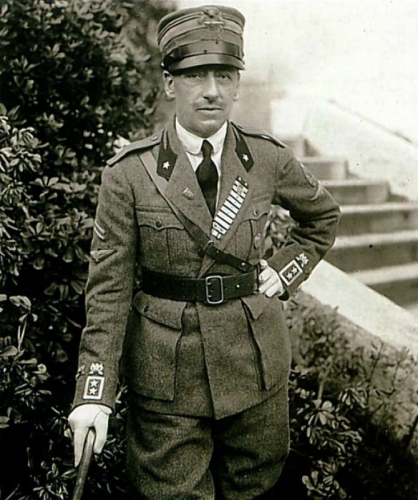
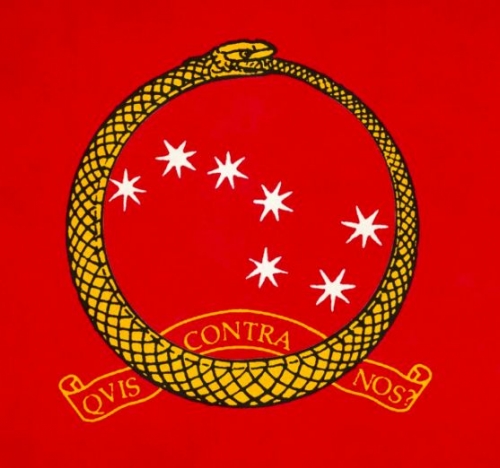
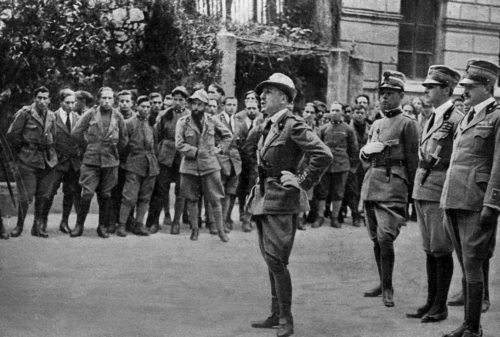

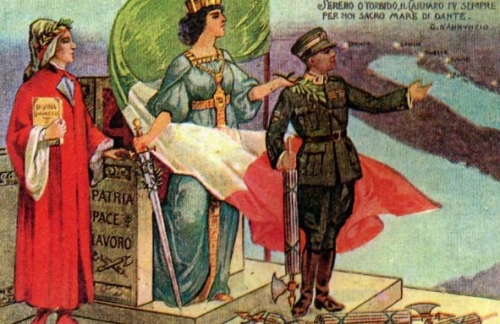

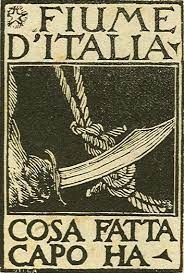
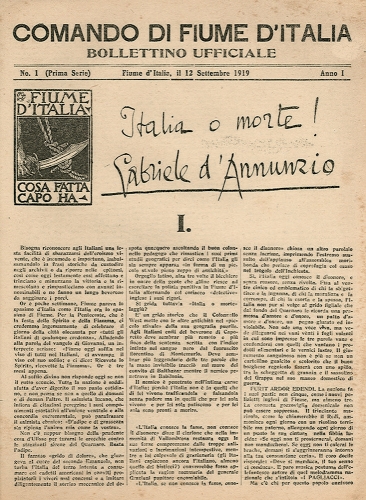






 del.icio.us
del.icio.us
 Digg
Digg

